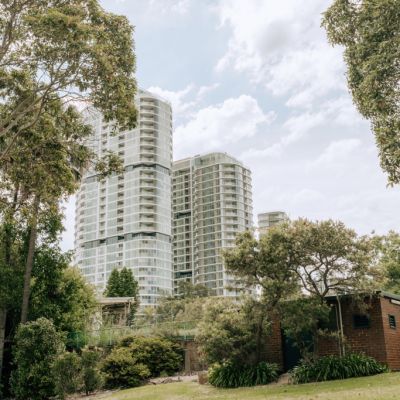‘A landlord’s market’: Sydney rents hit record highs
Sydney renters are moving further away from their jobs, into poorer quality homes, or with others to cope with record rents.
The city’s median asking house rent hit a fresh high of $775 a week, up 2 per cent, or $15, in the September quarter, Domain’s latest Rent Report, released on Thursday, revealed. It increased 7.6 per cent, or $55, in the year to September.
This was driven by Sydney’s more affordable regions with the biggest increases recorded in Blacktown (up 3.1 per cent), the south west (up 2.9 per cent) and Parramatta (up 2.7 per cent) in the last quarter.
Unit rents held steady at a record of $720 a week in the same quarter, but are 5.9 per cent higher, or $40, over the year to September.
But the largest unit increases were also in the most affordable pockets with Sydney’s south west up 3.8 per cent and Blacktown up 3.4 per cent.
Domain chief of research and economics Dr Nicola Powell said although Sydney recorded the weakest quarterly growth in four years for houses and units, it was still tough for renters. Sydney’s rental vacancy rate is only 1.1 per cent.
“It is a landlord’s market in Sydney. We’ve got a tight vacancy rate below 2 to 3 per cent [which is a more balanced market],” Powell said.
“What this is showcasing is the supply and demand imbalance across Sydney’s rental market.”
She said the slowdown in rental increases was due to factors such as migration passing its peak and compromises made by renters to make ends meet.
“Those compromises have been occurring in Sydney for a while and that is because of continued rent increases and tenants have faced continued financial strain.
“We’ve seen rents continue to rise where they have been no match for wages growth, then layer on the cost of living crisis,” she said. “Renters are compromising on location, property type, getting a sharehouse or moving back in with mum and dad.”
Tenants Union of NSW chief executive Leo Patterson Ross said tenants are forced to make compromises after years of rental growth outpacing wages.
“People have not been able to increase their incomes at the same rate so they have to make compromises around a range of things,” Patterson Ross said.
“Some people move further away from their ideal locations whether it’s close to work, school or family,” he said. “Other people want to prioritise the location and compromise on the size and quality of their accommodation.”
But he said more and more, those hardest hit have to compromise on both fronts, which has knock-on effects.
“They all can have really significant consequences whether it’s the travel time, that loss of free time has a health impact, family impacts or the quality of the place means you’re more likely to be in a place more mouldy or draughty.”
He said despite the aim to build more housing, there was a disconnect between where homes are built and where people want to live, close to their jobs and family.
Sydney renter Geeroh Ebrada is choosing to sub-lease a room in an apartment in Wolli Creek as it is cheaper for him than signing on to a lease.

He shares a three-bedroom apartment with a couple and one other housemate.
He pays about $370 a week, including utilities, which he feels is good value considering his access to the building’s amenities such as a swimming pool and gym. By contrast, he saw a two-bedroom apartment listed nearby for $880 a week not including bills.
“It’s more of a financial decision, so it’s a whole lot cheaper to sublease than actually get a full lease yourself,” the 32-year-old account manager said.
“I’m not breaking the bank.”
“It is a landlord’s market in Sydney”
Domain chief of research and economics Dr Nicola Powell
But he said a downside of the arrangement was that it would not give him a rental history. He had also looked at other properties where the leaseholders set strict house rules.
He sublet in his previous home, and thought if he had to move again in Sydney he would keep subleasing until he was in a healthier financial position.
AMP deputy chief economist Diana Mousina said while easing migration had led to lower demand, there was ultimately a supply and demand imbalance.
“The easing in migration is helping slow demand and also there are affordability pressures with rents causing households to increase their size.”
Mousina believed the rental market had peaked and expected a further slowdown in rental growth, but thought it would not go backwards.
“Migration is likely to keep easing, we’re likely to get rate cuts in the next 12 months, which will put downward pressure on rents and the affordability pressure is going to continue,” she said. “It will be difficult for landlords to pass on significant rises from here.”
We recommend
We thought you might like
States
Capital Cities
Capital Cities - Rentals
Popular Areas
Allhomes
More










